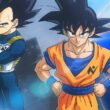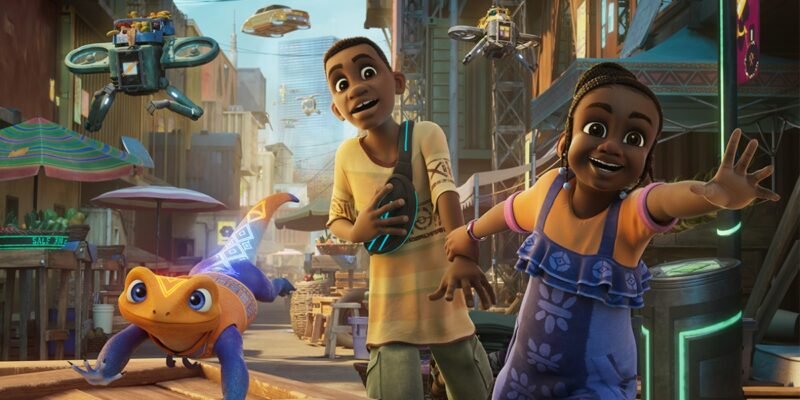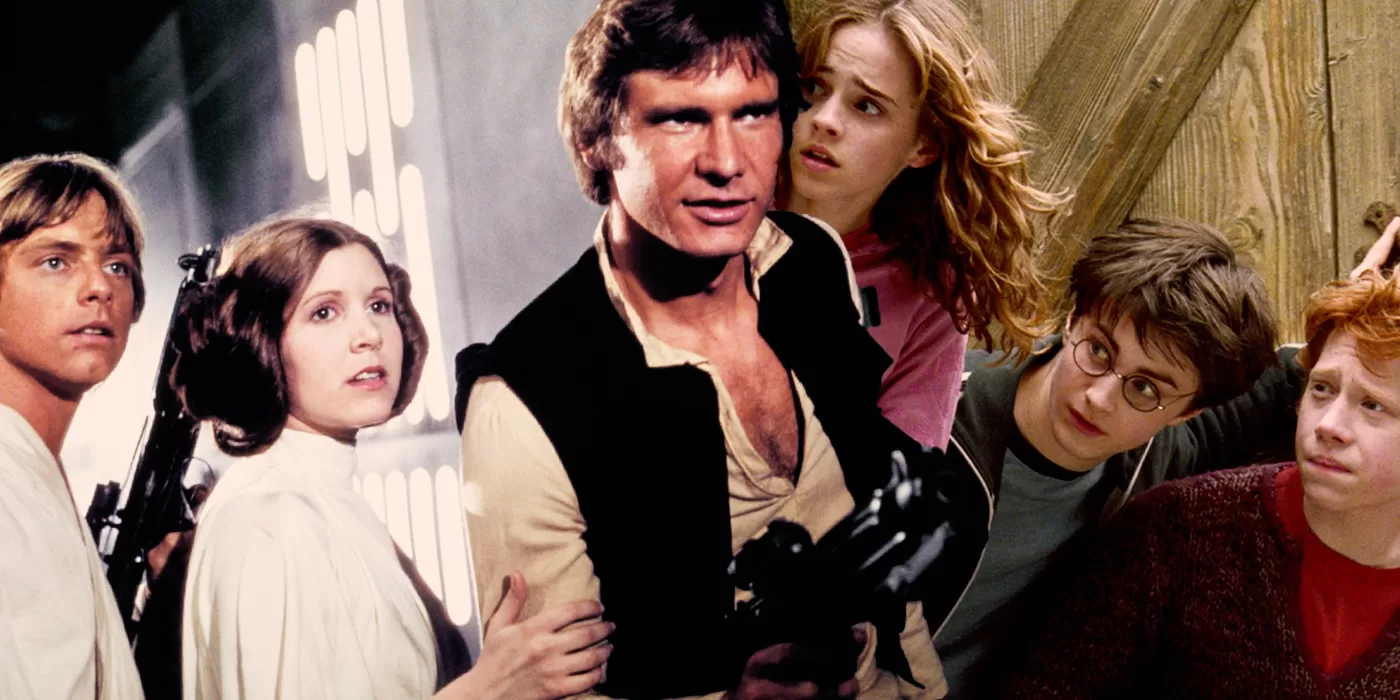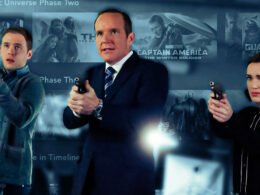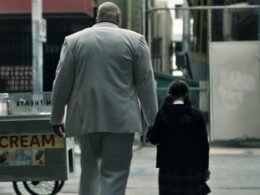Warning: The below may contain spoilers for Disney’s Iwájú.
Produced by Walt Disney Animation Studios and now streaming on Disney+, Iwájú is set in a futuristic Lagos, Nigeria. While several characters are explored in depth, the six-episode miniseries focuses on 10-year-old Tola Martins (Simisola Gbadamosi). Tola is a privileged yet lonely girl who craves a closer relationship with her father, Tunde (Dayo Okeniyi). Accompanied by her robotic lizard, Otin (Weruche Opia), Tola wishes to explore what exists beyond her sheltered home and upbringing. However, Tola’s adventurous spirit puts her directly in the crosshairs of a mysterious villain.
Iwájú features exceptional animation, which tends to be a staple for the studio’s recent projects. However, it’s the voice acting and the Nigerian Pidgin dialogue that brings the series to life more than anything else. The voice cast is collectively incredible, as their performance creates a refreshing sense of authenticity. The amount of harsher real-world themes and realities weaved into a show meant for children is a surprise. However, the inclusion of these concepts, such as poverty and class disparity, is critical to the progression of the story.
‘Iwájú’ Review: Important Real-World Themes Are Baked Into an Emotional Story
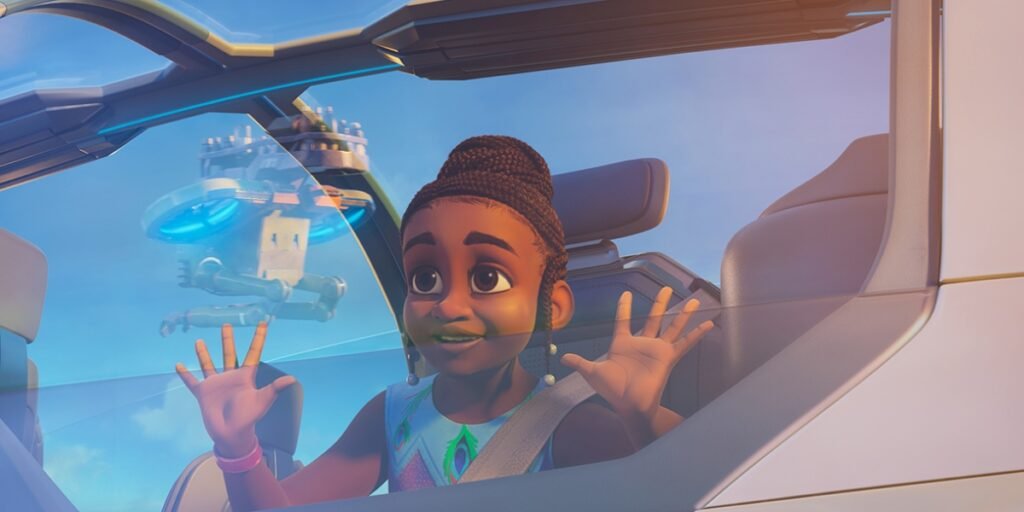
On its surface, Iwájú has the appearance of a standard Disney animated kids adventure story. There’s a protagonist in Tola, a menacing antagonist in Bode (Femi Branch), and an abundantly present sci-fi theme. However, beneath the surface, a story is being told about how to treat others, regardless of class or socioeconomic status.
For example, Tola considers Kole (Siji Soetan), who works as a gardener for her family, to be her best friend even though Tola knows very little about Kole’s background, or how much he has gone through at such a young age. Kole’s economic status has caused him to drop out of school, despite his considerable intelligence.
Kole’s desperation and need to provide for his ailing mother cause him, a good person, to make a questionable decision. Even moral and ethical people can make the wrong choices for what they feel to be the right reasons. Kole’s decision highlights the harsh reality that we never truly know what may be going on in someone’s life. Throughout Iwájú, the point is emphasized that just because someone may have less, that doesn’t mean they’re worth any less. Conversely, it’s also reinforced that while Tola may come from privilege, her loneliness is still valid.
Bode’s Depth as a Villain Is What Makes Him So Menacing
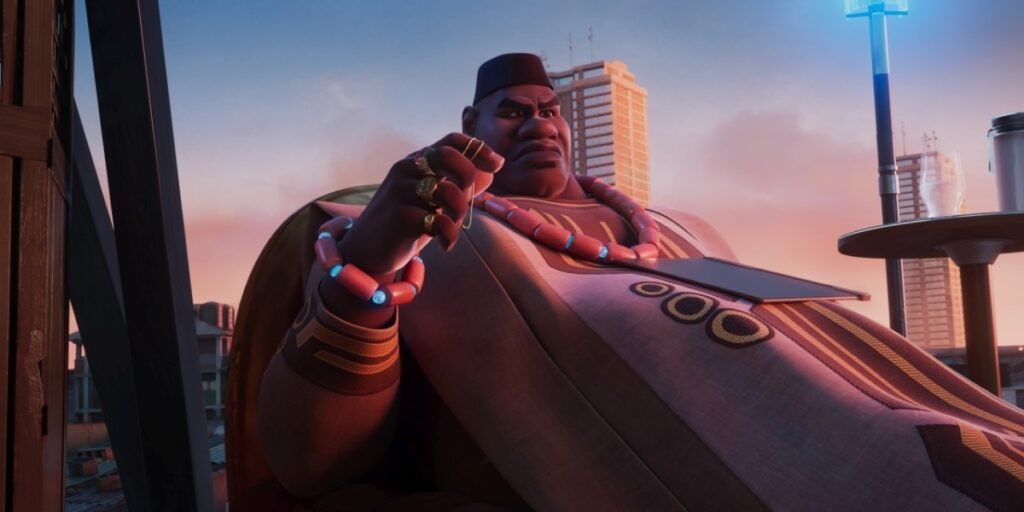
A story cannot have a quality villain if the motivation for that person’s actions isn’t made abundantly clear. Part of what makes Bode an effective villain in Iwájú is the show’s considerable exploration into his background and ethos. Like Kole, Bode comes from meager beginnings, as he grew up with very little. From a young age, he believes taking from the wealthy is justified because they have so much more than him.
Fast forward to the present and Bode is now, at least in his own eyes, a modern-day Robin Hood. He and his henchmen kidnap children from wealthy families, holding them for ransom to the tune of millions of dollars. Bode feels that it’s his duty to “teach these islanders a lesson.” He justifies his actions by diminishing the kidnapped children to “problems their parents throw money at.”
Because Kole’s family is indebted to Bode, the towering villain successfully manipulates the boy into helping him kidnap Tola. Knowing what Tola’s father does for work and how wealthy he is, Bode views Tola as the ultimate cash cow. However, the young girl’s cleverness and her trusty high-tech sidekick prove too much for him to handle.
We Need To Talk About Tola’s Robotic Lizard, Otin
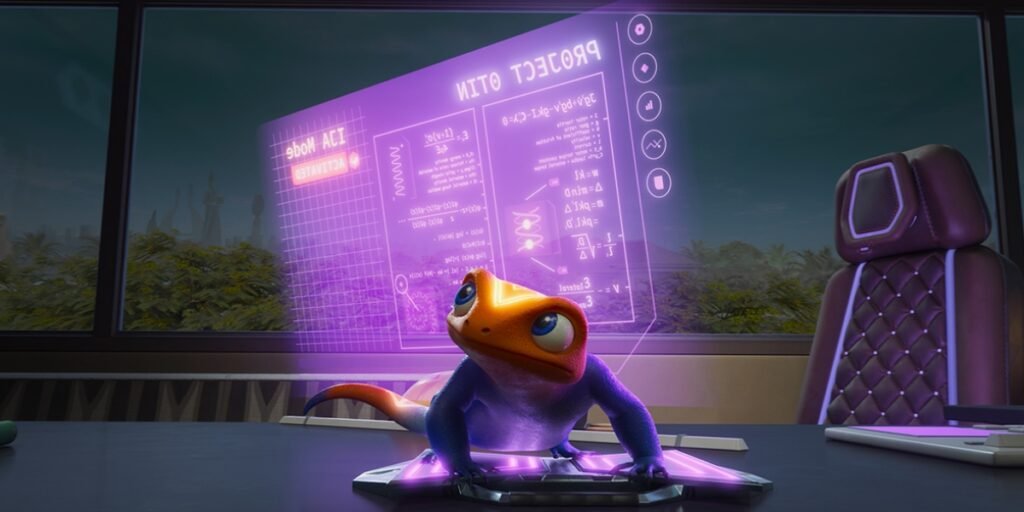
It’s highly probable that after watching Iwájú, kids around the globe will want a pet lizard just like Otin! Tola’s trusty protector is one of Tunde’s inventions and is gifted to his unsuspecting daughter on her birthday. Otin is flawed, however, as Tunde has been unable to perfect her “Ija Mode,” which is essentially a battle form.
These design drawbacks are part of the reason why Otin is unable to protect Tola from Bode. The adorable cyborg reptile is just as determined as the girl she’s assigned to protect, though, eventually tracking her down. The two make a perfect pair!
Similar to Tola, who begins to see the world through a different lens, Otin also undergoes development throughout the series. Because of her incomplete programming and design, Otin is initially silent, with Tola being completely unaware of her true nature.
However, as she begins to experience society’s harsher truths firsthand outside of a laboratory, Otin slowly becomes self-aware. With the help of Kole, Otin’s design and programming flaws are fixed and she fulfills her purpose as Tola’s protector. Seeing the pair finally bond and work together in the Iwájú finale will bring a smile to your face!
‘Iwájú’ Takes Audiences On a Unique and Exciting Journey
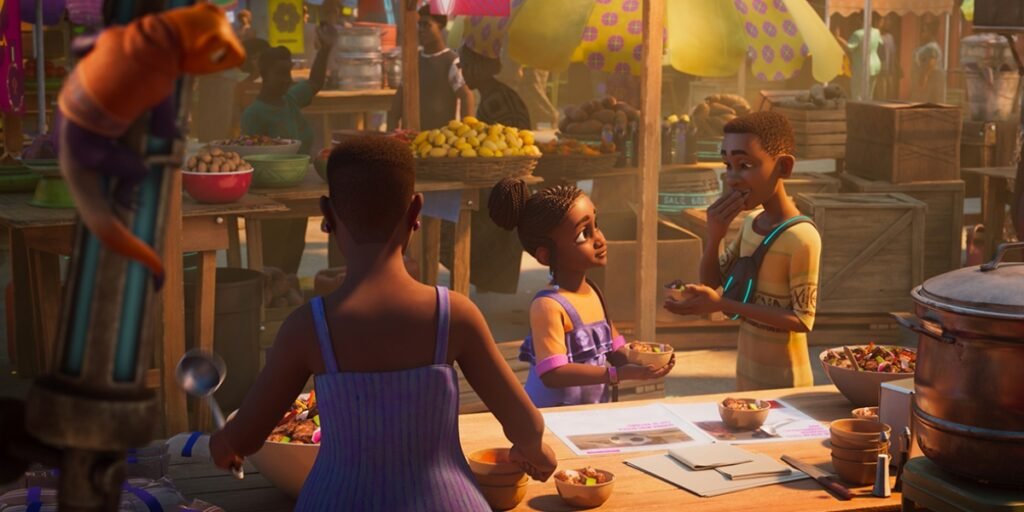
Iwájú is a unique creation in more ways than one. It’s the very first collaboration between Walt Disney Animation Studios and Pan-African entertainment company Kugali. Through this partnership, the two companies not only tell a great story, but a genuine one, at that. Between the authentic dialogue and the accurate depiction of Lagos, audiences are taken on an exciting and extremely unique journey. Capturing true Nigerian culture was of vital importance to the dual production teams, and it’s clear they succeeded.
Besides the on-screen cultural representation, however, Iwájú also sends an important message to its audience. Regardless of your background and social standing, you can achieve whatever you set your mind to. Conversely, those who come from an affluent background can still go through struggles of their own. At the end of the day, we should all remember to not be so quick to judge others. Oh, and having a pet robotic lizard would be pretty neat, too!
Stay tuned to the Agents of Fandom socials for the latest news, reviews, and interviews!
'Iwájú' Review
'Iwájú' ReviewThe Good
- The series is led by a tremendous voice cast.
- The authentic Nigerian Pidgin dialogue layers the series in reality.
- Excellent animation will stun through the length of the series.
- Real-world themes are weaved seamlessly into the story.
The Bad
- It could have used another 1 or 2 episodes to better flesh out its characters.
- The finale was a bit rushed



